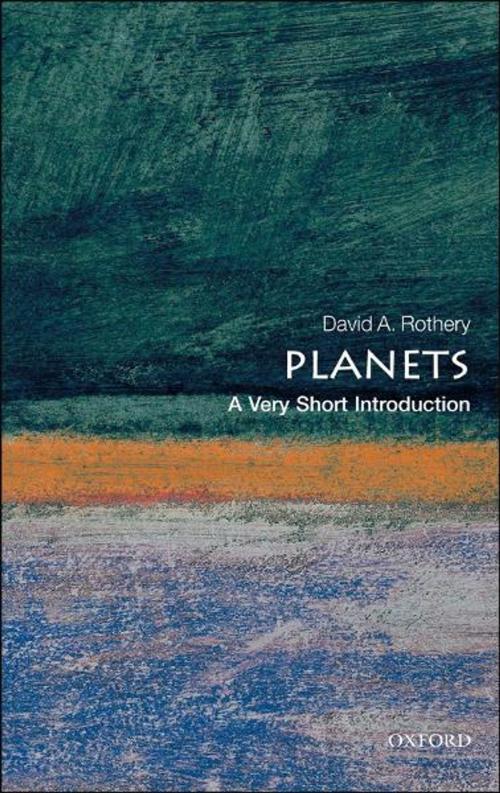Planets: A Very Short Introduction
Nonfiction, Science & Nature, Science, Physics, Astronomy, Mathematics| Author: | David A. Rothery | ISBN: | 9780191614439 |
| Publisher: | OUP Oxford | Publication: | November 25, 2010 |
| Imprint: | OUP Oxford | Language: | English |
| Author: | David A. Rothery |
| ISBN: | 9780191614439 |
| Publisher: | OUP Oxford |
| Publication: | November 25, 2010 |
| Imprint: | OUP Oxford |
| Language: | English |
This Very Short Introduction looks deep into space and describes the worlds that make up our Solar System: terrestrial planets, giant planets, dwarf planets and various other objects such as satellites (moons), asteroids and Trans-Neptunian objects. It considers how our knowledge has advanced over the centuries, and how it has expanded at a growing rate in recent years. David A. Rothery gives an overview of the origin, nature, and evolution of our Solar System, including the controversial issues of what qualifies as a planet, and what conditions are required for a planetary body to be habitable by life. He looks at rocky planets and the Moon, giant planets and their satellites, and how the surfaces have been sculpted by geology, weather, and impacts. ABOUT THE SERIES: The Very Short Introductions series from Oxford University Press contains hundreds of titles in almost every subject area. These pocket-sized books are the perfect way to get ahead in a new subject quickly. Our expert authors combine facts, analysis, perspective, new ideas, and enthusiasm to make interesting and challenging topics highly readable.
This Very Short Introduction looks deep into space and describes the worlds that make up our Solar System: terrestrial planets, giant planets, dwarf planets and various other objects such as satellites (moons), asteroids and Trans-Neptunian objects. It considers how our knowledge has advanced over the centuries, and how it has expanded at a growing rate in recent years. David A. Rothery gives an overview of the origin, nature, and evolution of our Solar System, including the controversial issues of what qualifies as a planet, and what conditions are required for a planetary body to be habitable by life. He looks at rocky planets and the Moon, giant planets and their satellites, and how the surfaces have been sculpted by geology, weather, and impacts. ABOUT THE SERIES: The Very Short Introductions series from Oxford University Press contains hundreds of titles in almost every subject area. These pocket-sized books are the perfect way to get ahead in a new subject quickly. Our expert authors combine facts, analysis, perspective, new ideas, and enthusiasm to make interesting and challenging topics highly readable.















